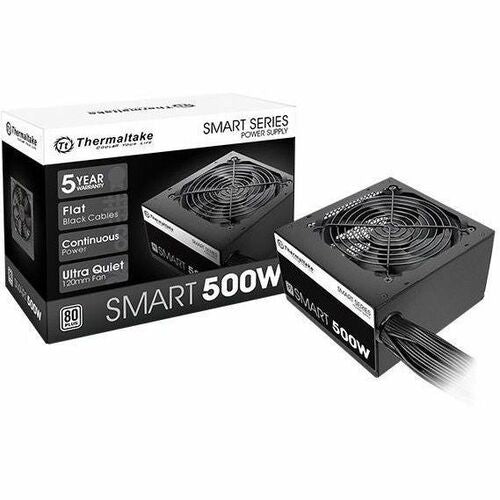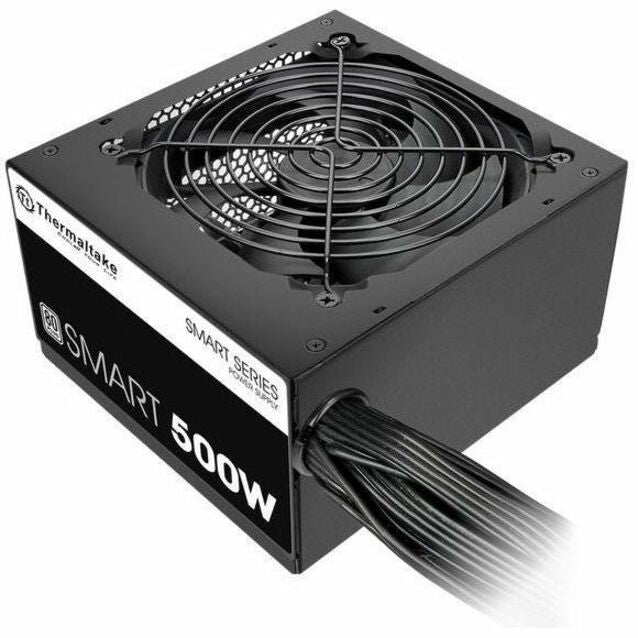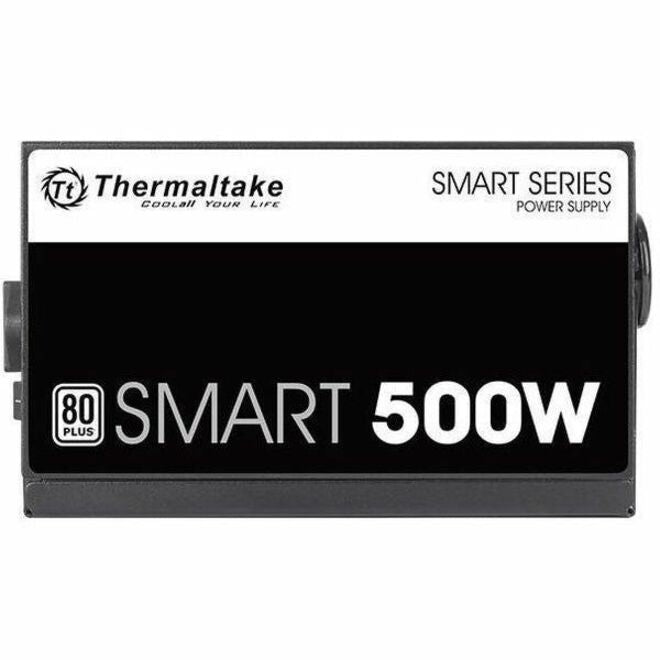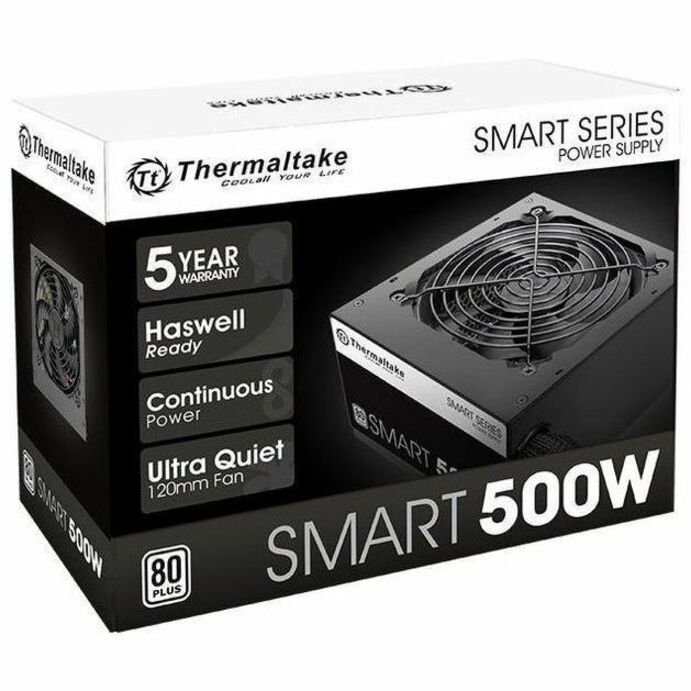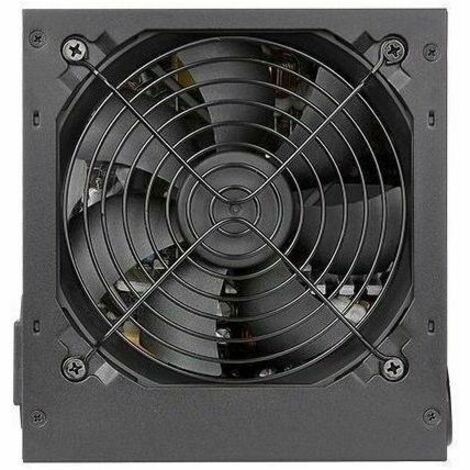Thermaltake Smart SP-500AH2NKW Power Supply
Thermaltake Smart SP-500AH2NKW Power Supply
Couldn't load pickup availability
The Budget-Friendly Workhorse: Thermaltake Smart 500W
The Thermaltake Smart 500W is the ideal, affordable power solution for any mainstream or budget PC build. This unit delivers a dependable 500 Watts of continuous power and is 80 PLUS Certified (Standard/White) for solid efficiency (up to 86%). It features a quiet 120mm fan to keep temperatures low and includes all the necessary safety protections to keep your components secure, making it a reliable and cost-effective choice for general-purpose computing and light gaming systems.
⭐ Highlights
⭐ Highlights
500W Continuous Power | 80 PLUS Standard Certified (Up to 86% Efficiency) | Single +12V Rail Design (35A) | Quiet 120mm Intelligent Cooling Fan | 5-Year Limited Warranty
⚙️ Specifications
⚙️ Specifications
PSU_Form_Factor: ATX (Standard)
PSU_Wattage: 500 W (Continuous)
PSU_Efficiency_Rating: 80 PLUS Standard
PSU_Modularity: Non-Modular
PSU_PCIe_5_Connector: None (Uses 2x 8-pin (6+2) for GPU)
PSU_Fan_Size_mm: 120 mm (Ultra Quiet Fan)
PSU_Safety_Protections: OVP (Over Voltage), UVP (Under Voltage), SCP (Short Circuit), OPP (Over Power)
Share
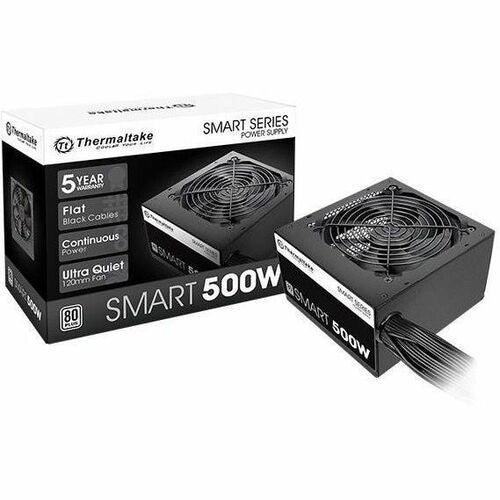
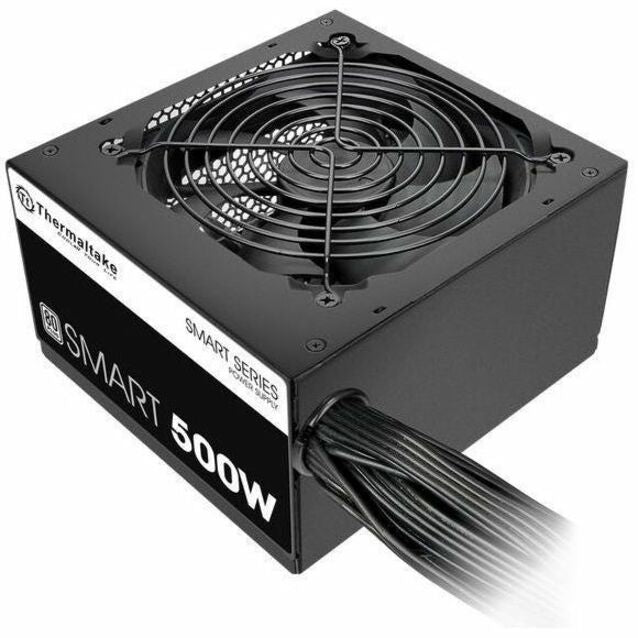
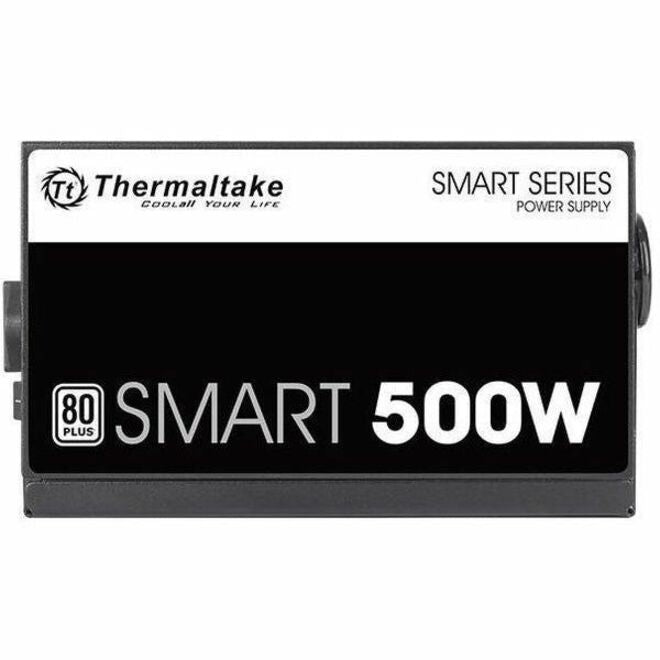
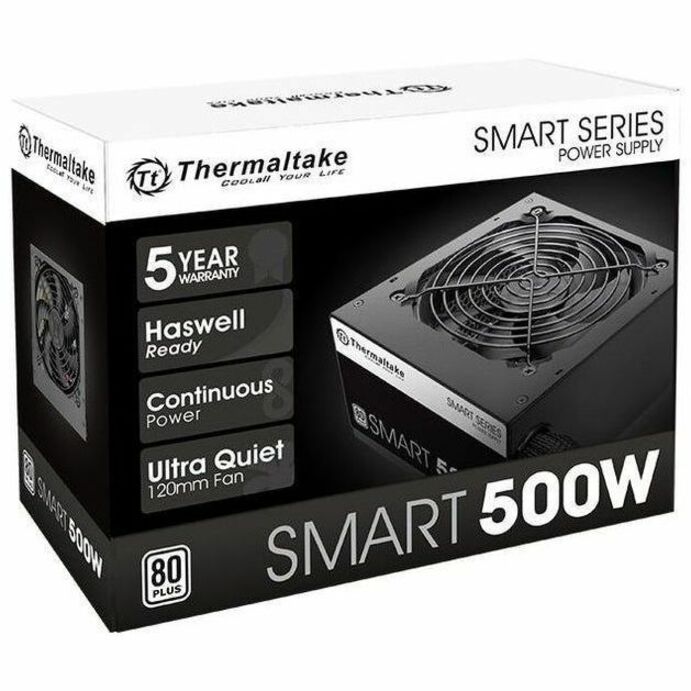
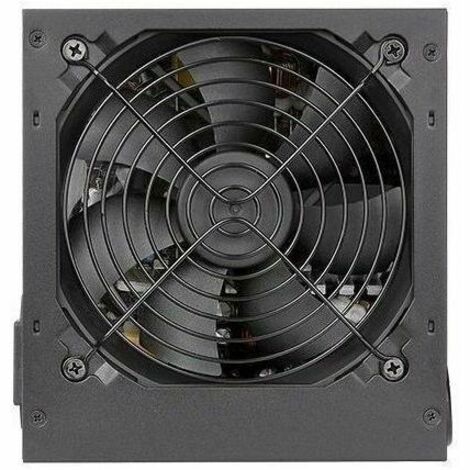
The POST-Check Protocol
-
Calculate Required Wattage
Action: Use an online PSU calculator (or check your GPU/CPU recommendations) to determine the wattage needed and choose a PSU that is 20% to 30% higher than that total load. Why: Running a PSU at or near its maximum capacity reduces its efficiency and lifespan, leading to potential instability and crashes.
-
NEVER Mix Modular Cables
Action: CRITICAL: Only use the modular cables that came inside the box of your specific, new PSU, and never reuse old cables from a previous unit, even if they fit. Why: Modular cables are not standardized on the PSU end; mixing them can send incorrect voltages to components and instantly destroy the motherboard or GPU.
-
Fan Orientation
Action: When installing the PSU into the case, orient the fan so it is facing the vent/dust filter on the case (usually downward, at the bottom). Why: This ensures the PSU pulls cool, fresh air directly from outside the case to cool its own components, maximizing its lifespan.
-
Essential Cable Connections
Action: Ensure the 24-pin ATX (motherboard), the 8-pin CPU (motherboard top-left), and all PCIe power cables (GPU) are fully seated and clicked in. Why: A loose or partially plugged-in cable can lead to catastrophic failure, burning out the connector port or causing system instability under load.
-
The Power Switch
Action: Before working inside the PC, flip the power switch on the PSU itself to the OFF (0) position and unplug the wall cord, then press the case power button to drain residual power. Why: This discharges capacitors, eliminating the risk of accidental electrical shock or frying sensitive components with residual power.
-
Cable Management (Modular)
Action: If using a modular PSU, plug in only the cables your components require and route all cables neatly behind the motherboard tray. Why: This improves airflow and makes the build cleaner, but more importantly, it ensures no loose, unused cables are left inside to snag fans or short against metal.

